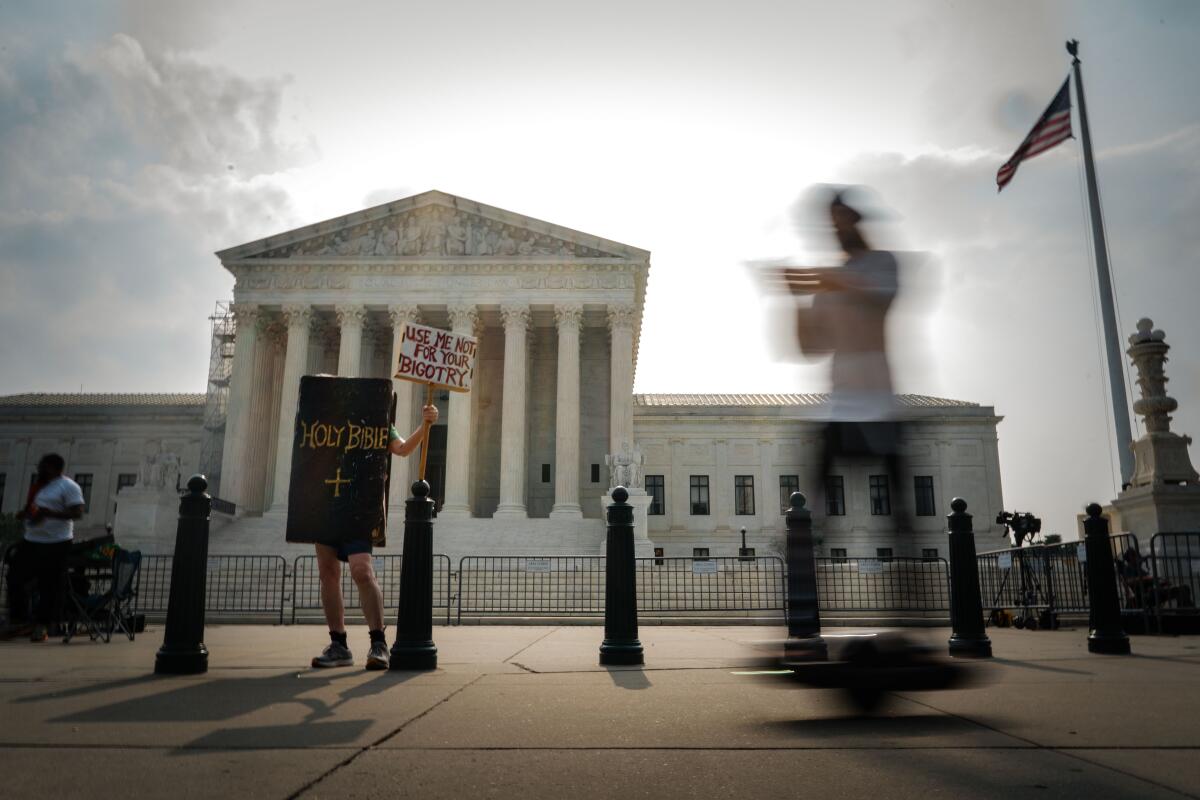Letters to the Editor: Can embarrassment force Congress to enact a real Supreme Court ethics code?

- Share via
To the editor: UC Berkeley School of Law Dean Erwin Chemerinsky correctly explains that the recently published Supreme Court ethics code is fatally flawed because it lacks any enforcement procedure. Unlike all other federal judges, each Supreme Court justice is a judge unto himself or herself. An enforcement mechanism is needed for an ethics code to work.
Still, an uncodified potential enforcement procedure may be available, however flawed it might be sunlight.
Attorneys appearing before the court, including those filing amicus briefs, and other interested citizens can file fact-based motions seeking to use the new code to request a judge to recuse himself or herself for bias or the appearance of bias.
While there is no formal procedure for such motions, and they may be routinely denied, they can when publicized bring this issue to public attention. Hopefully, the embarrassment this might cause over time will force Congress to create a formal code with enforcement.
Les Weinstein, Los Angeles
The writer is an attorney.
..
To the editor: Chemerinsky suggests ways for the Supreme Court to determine standards for the justices’ recusals from controversial cases.
Perhaps the real problem lies in the appointment of malleable political jurists who adjust the form of the mantle that they wear due to their life appointment.
The signal disasters of the court — the Dred Scott case, opening the gates of slavery to all states and territories, thus preordaining the Civil War; and Plessy vs. Ferguson, codifying and enshrining the inequality of the races for many decades — came from justices who failed to act decently and morally.
Find better justice nominees.
Andy Siegel, Santa Barbara
..
To the editor: I have translated the new Supreme Court code of ethics. Here it is:
“Here are some things that we know we ought to do, but we don’t have to if we don’t feel like it. Ha ha.”
Craig Arnold, Long Beach



